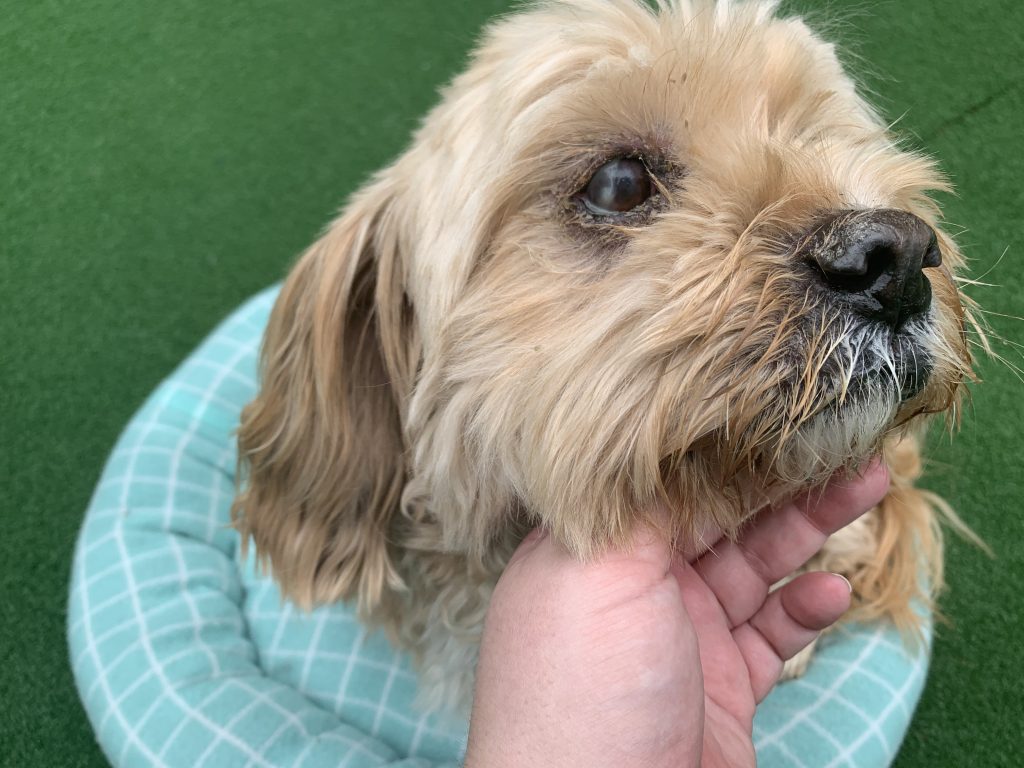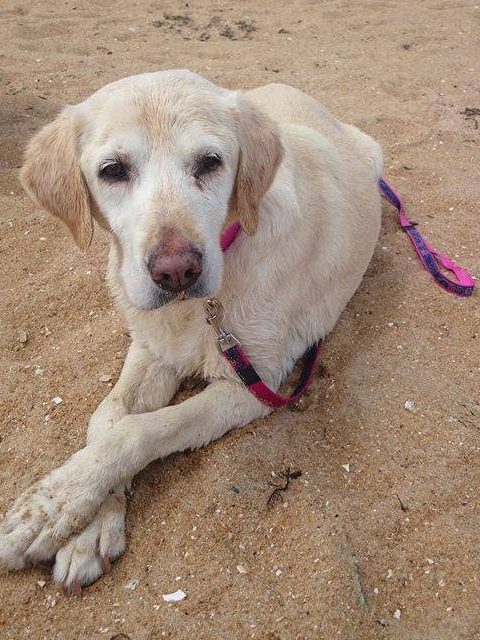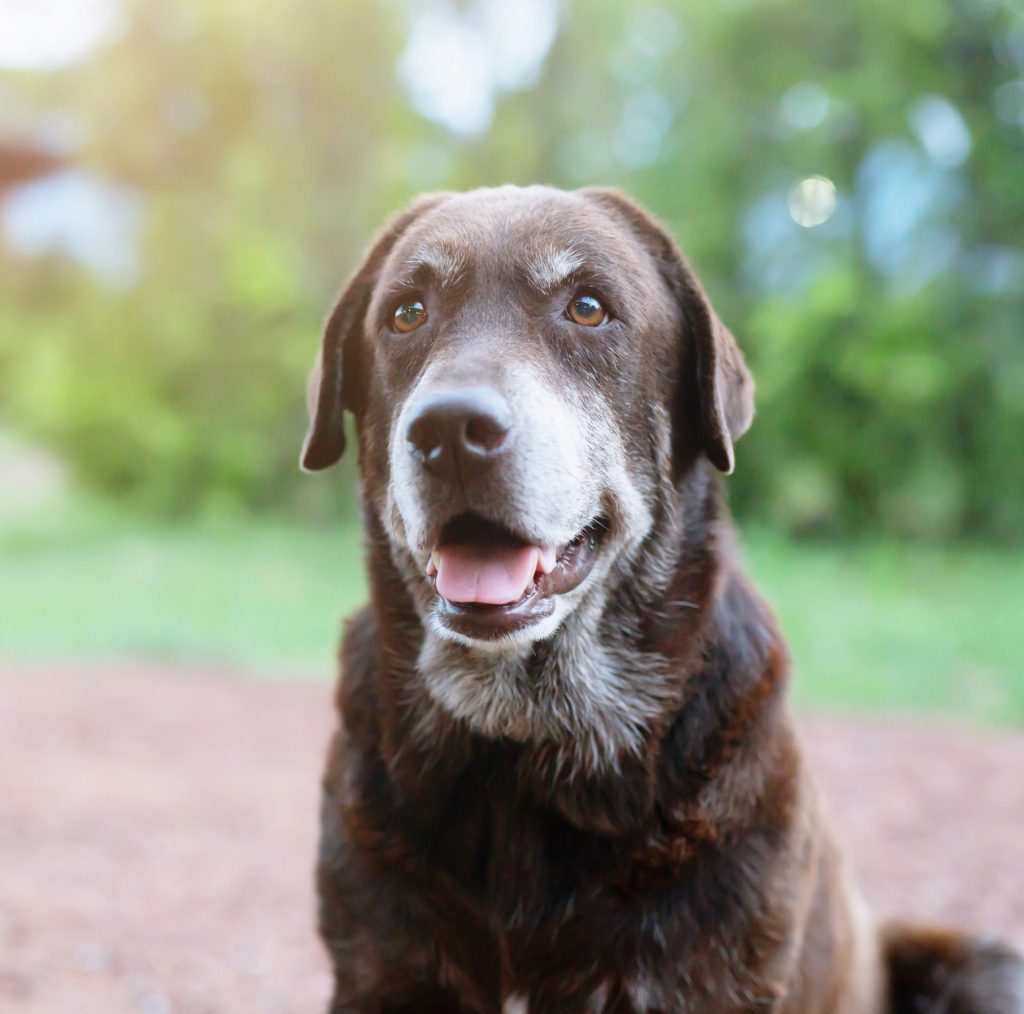Living with Senior Pets
For many, it's an inevitability that eventually their cute, bouncy puppy or smoochy baby kitten will one day start sporting some white hairs, appreciating their sleep more and enter the golden years of being a senior pet. Some of us really love our seniors and are keen to adopt them when they need a home and avoid the youngster stage altogether! Rescues come in all ages, but (all going well), one day, you will be faced with a pet that starts feeling its age. This is a beautiful part of the journey of pet ownership, even though it can be bittersweet facing mortality and seeing your best friend start to slow down. There are some accommodations we can make to ensure our companions cruise through their 'retirement' as comfortably as possible. Old age should never be considered as a disease, but it can come with some challenges.
Osteoarthritis
The disease that is usually most strongly correlated with old age, and very often implicated as the cause of 'slowing down' as animals get older, is osteoarthritis. This is a degenerative joint disease most typically affecting the hips, knees, elbows and spine of older dogs and cats. As care for our pets has increased over the decades and the life expectancy of our companion animals has likewise increased, diagnosis of osteoarthritis is on the rise. As a degenerative disease involving structural changes to the joints, there are very few cases which can be 'cured'; most of our options for arthritis are aimed at controlling inflammation and discomfort associated with the disease.
The best results are achieved via an approach that takes into account your pets' personality and lifestyle and is best done in conjunction with your veterinarian. Simple adjustments such as providing softer bedding, providing ramps over stairs, or reducing the height of a litter tray can go a long way in helping comfort levels!
Treatments also tend to encompass a tailored exercise plan, dietary supplements, and one or several injectable or oral medications depending on what works best for the dog or cat, and what suits with the owner's lifestyle. No one protocol will work perfectly for every pet; every animal is an individual!

Loss of Senses
Just as in their human counterparts, things often 'don't quite work like they used to' as dogs and cats get older. Sight is often impacted by senior changes, or the development of cataracts. The good news is that most animals cope very well with impaired vision, especially if kept in a stable, familiar environment. Hearing and sense of smell are also often reported to deteriorate with age, though testing for this is complicated and can be difficult to confirm. Being astute as to changes in your pet, whether it be bumping into things at night or not responding to your calls anymore, should warrant a veterinary check-up.
Obesity/Weight Loss
It's best to always aim to keep your pets in an ideal body condition, but this can prove difficult as they get older, for a multitude of reasons. Animals with arthritis who are more reluctant to exercise can start gaining weight, which then further compromises their willingness to exercise and places more strain on their diseased joints. Weight loss can be 'normal' to a certain degree as muscle mass decreases with age, but weight loss trends in older animals raise flags for internal disease such as heart disease, kidney problems, hormonal problems and even cancers. Any weight fluctuations or trends in either direction warrant a health check with your veterinarian. Most clinics welcome you to bring your pet in for complimentary weigh ins to track these trends and catch any issues early.
Lumps and Bumps
A large percentage of older animals will develop masses as they age. These can be on the skin surface, located under the skin, or even within the muscle or inside the body. Hopefully, these masses will be benign, but it is important to be vigilant for any new lumps, as they can be nasty and require surgical removal or prompt further investigation. Masses warrant a health check with your veterinary team.
Incontinence
Oops! Older animals may start to have accidents in the house as they age, even if they have previously been well house trained. This can be from a variety of causes, ranging from urinary tract infections and hormone-related incontinence through to cognitive dysfunction (refer below), stress, and impaired movement due to arthritic pain. It is important to work with your veterinarian to get a diagnosis so your pet can be treated accordingly. For those animals with a condition which cannot be treated, urinary and faecal incontinence can be managed. This can involve the use of disposable bedding/puppy training pads where your pet sleeps, ensuring they are kept clean and do not develop dermatitis secondary to leaking urine, and changing their living quarters to make accidents easier to avoid/control. Again, your veterinarian can assist you in making a plan that works for your family.
Cognitive Dysfunction
Cognitive dysfunction, also known as 'doggie dementia' is thought to be a gradual decline in neurological function as a result of brain aging. Signs can vary a lot between individuals, but typically signs are related to confusion: wandering around apparently aimlessly, wanting to be let in and out of the house frequently, not settling at night. It is important to have your pet checked by your veterinarian and ensure there are no other causes of these signs. If diagnosed, there are unfortunately no reliable treatments for cognitive dysfunction, as is the same case for humans. While medications and specialised diets can be trialled and may assist in controlling signs, often, coping with cognitive dysfunction involves learning to accommodate your pets' new behaviours and reducing their stress levels as best as you can. Having a close relationship with your furry friend means the owner is often best placed to figure out changes that will work the best for their pet.
Other Disease
Just as in pets of any age, a multitude of other problems can develop in seniors, as much as we hope they do not! Problems such as dental disease, heart disease and kidney trouble do have a higher prevalence as animals age. Even if your senior pet seems well, it is important to have them checked by your veterinarian regularly to catch any problems which are under the radar (as has been a common suggestion of this blog post!). Blood and urine testing can be invaluable in showing early signs of changes.
A Life Worth Living
The sunset years are some of the most precious that you can have with your special friend. All the hard work you put into developing a lifelong bond from a young puppy or kitten or gaining trust and building a friendship after adopting an adult animal, are rewarded with knowing you have given your pet the best life it could live as they rest in their retirement. Most animals will be keener to spend a lot of their day sleeping and resting, though there is no golden rule for this, and some will remain very active even as they grow older! Many are happier to snuggle up to you than they have been in the past, which is welcomed by many owners! Seniors deserve just as much love and attention as they did when they were younger.
Our task as animal guardians is to ensure the animals in our care always have a life worth living. Sadly, there may come a time when we need to consider whether our pets are still enjoying life as they should be.

It's always important to ensure your aging pet still has things they love to do and get enjoyment from in life, and that their positive experiences outweigh any negatives of any diseases or degenerative conditions they may have.
Euthanasia is not to be taken lightly, but in some cases, is the kindest choice we can make for our friends and is a final gift we can give to relieve suffering. The process is very peaceful and can be done in the animal's own home if you choose. Again, this decision should be the result of a team discussion between your family and your veterinarian.

Adopt a Senior
Senior pets rock! Sometimes, senior animals find themselves in need of rescue and a new home, often with heartbreaking circumstances. However, most seniors have nothing but great enthusiasm and affection for those that provide them with their second chance. Their oftentimes calmer demeanour makes them perfectly suited for older or quieter homes, and pending any health concerns, they can be lower maintenance than a younger pet. Have a chat with the team at SCAR if you think you could be the right household to adopt or foster a senior pet. For those of you up to the emotional challenge, you could also consider offering 'pawspice' (hospice) care for those special rescue kids who have a terminal condition and need a loving home for the rest of their days. The SCAR team is always happy to assist you in finding the right furry friend for your family.
Further Reading:
- Learn more about our End Of Life Program, which provides priceless end-of-life care to a senior pet otherwise destined to pass away in a lonely cage.
- Have a senior pet of your own that you'd like to book in for a vet check? Head to our low-cost Community Animal Hospital to book in a time to chat to one of our friendly vets!
- Check out our Adopt A Pet page to see if there are any elderly friends in our care just waiting to find their second chance!






















